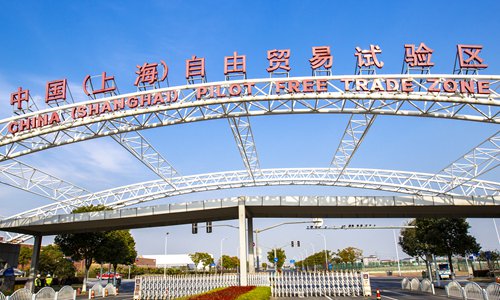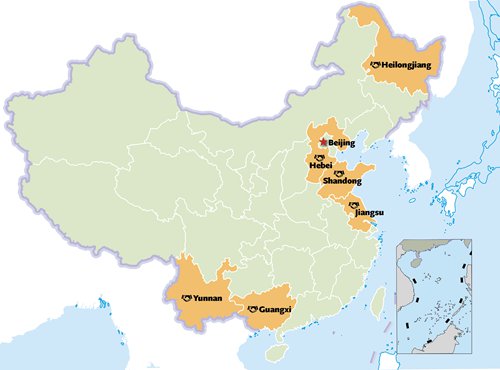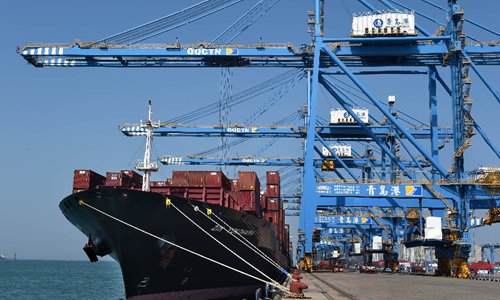HOME >> BUSINESS
Six new pilot FTZs will test further reform, opening-up measures
Source:Global Times Published: 2019/8/26 21:26:01

The No.8 gate of the China (Shanghai) Pilot Free Trade Zone in March Photo: IC

Photo: GT
Six pilot free trade zones (FTZs) are to be set up in six different provinces, China announced on Monday, to test high-level reform and opening-up measures in a wide range of areas from finance to technology to healthcare as part of the country's ongoing reforms.
The new move, following other initiatives and coming at a time of rising trade protectionism overseas, sends a clear signal of China's firm commitment to further reform and opening-of its economy, an analyst noted.
The State Council, China's cabinet, announced plans for setting up six pilot FTZs in East China's Shandong and Jiangsu provinces, South China's Guangxi Zhuang Autonomous Region, Southwest China's Yunnan Province, North China's Hebei Province and Northeast China's Heilongjiang Province.
The FTZs will implement various "high-level" reform and opening-up measures that would improve efficiency and expand market access to foreign investors in more areas from trade to financial to technology to tourism . The aim is to build the FTZs into "high-standard, high-quality" ones with global competitiveness, the State Council said.
"This is a clear signal that China is moving forward with its reform and opening-up measures at its own pace, in spite of changes in the external environment," said Chen Fengying, a research fellow at the China Institutes of Contemporary International Relations, "For all the internal and external challenges, China's answer is clear: We will continue to reform and open up."
When trade protectionism is on the rise and a marked transformation in China's economy exerts pressure on short-term growth, policymakers have been consistent in pushing forward reform and opening-up.

A foreign cargo ship unloads in a container shipping port in Qingdao, May 14, 2018. (Xinhua/Li Ziheng)
China also issued a guideline to build Shenzhen, South China's Guangdong Province, into a global "benchmark" city through various favorable policies. Shenzhen was the starting point of China's reform and opening-up policies that began four decades ago.
While Shenzhen is to be a pioneer for future reform and opening-up, the new pilot FTZs are clearly designed to boost trade with neighboring countries and regions.
The Shandong FTZ, for instance, is intended to strengthen regional economic cooperation with South Korea and Japan. China, South Korea and Japan are in negotiations for a trilateral trade agreement. The Guangxi FTZ will also play a much bigger role in enhancing trade and economic ties with the Association of Southeast Asian Nations.
"This is a stark contrast to rising protectionism in the US and Europe," Chen said. "China is increasingly becoming the standard-bearer for preserving global free trade and economic globalization."
Posted in: ECONOMY